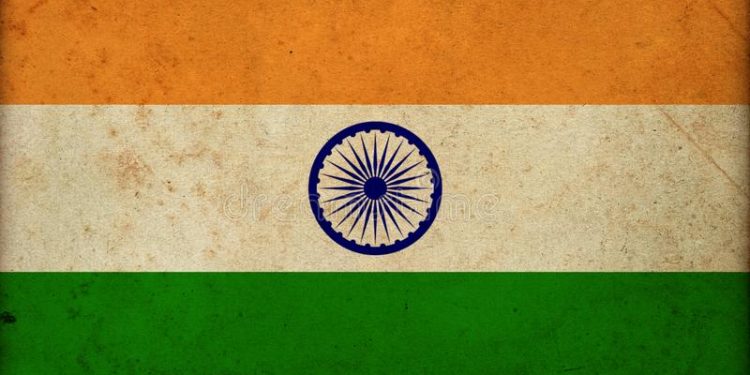In its recent judgement last week, the Delhi High Court has called upon the Centre to bring in Uniform Civil Code (UCC) so that conflicts and variations in several different personal laws in relation to marriage and divorce can be brought under fold.
Justice Pratibha M Singh quoted:
The hope expressed in Article 44 of the Constitution that the State shall secure for its citizens Uniform Civil Code ought not to remain a mere hope. The Supreme Court had in 1985 directed that the judgment in Ms. Jordan Diengdeh be placed before the Ministry of Law to take appropriate steps. However, more than three decades have passed since then and it is unclear as to what steps have been taken in regard till date.
The court directed that a copy of the order be communicated to the secretary, Ministry of Law & Justice, Government of India for necessary action as “deemed appropriate.”
Which Case Triggered Delhi High Court?
The remarks on the Uniform Civil Code came on a petition questioning the applicability of The Hindu Marriage Act, 1955 in respect of a couple belonging to the Meena Community. When the husband sought divorce, the wife contended that Hindu Marriage Act did not apply to them, as Meena Community was a notified Scheduled Tribe in Rajasthan and were covered by exclusion under Section 2 (2) of the act.
Rejecting the wife’s stand, the high court remarked that cases like the present one “highlight the need for such a code- common to all’, which would enable uniform principles being applied in respect of aspects such as marriage, divorce, succession, etc.
The High Court also added that the marriage was conducted as per Hindu rites and the provision of exclusion was meant only to protect the customary practices of recognised Tribes. Justice Singh elaborated,
If members of a tribe voluntarily choose to follow Hindu customs, traditions and rites, they cannot be kept out of the purview of the provisions of the HMA, 1955. Codified statutes and laws provide for various protections to parties against any unregulated practices from being adopted. In this day and age, relegating parties to customary Courts when they themselves admit that they are following Hindu customs and traditions would be antithetical to the purpose behind enacting a statute like the HMA, 1955.
Later, Justice Singh allowed the appeal filed by the husband and asked the trial court to proceed in accordance with the Hindu Marriage Act in the matter and decide within six months.
Understanding Uniform Civil Code
Uniform Civil Code (UCC) would provide one civil law for the entire country, applicable in a uniform manner to all religious communities with regards to marriage, divorce, inheritance, adoption, etc. Article 44 of the Constitution lays down that the state shall endeavour to secure a Uniform Civil Code for the citizens throughout the territory of India. Different laws regulate the aspects in India for adherents of different religions, for example Hindu Marriage Act, Hindu Succession Act, Indian Christian Marriages Act, Parsi Marriage and Divorce Act. However, Muslim personal laws are not codified and are based on their religion.
What is Law Commission’s Take On This?
The Law Commission had termed the prospect of Uniform Civil Code difficult to implement, saying:
Uniform Civil Code is not possible and not even an option.
The law panel had said that the exemptions under the constitution must be honoured and Uniform Civil Code could disturb the essence of the constitution. It said,
Constitution itself has given so many exemptions to so many people belonging to the tribes, etc. Uniform Civil Code is not a solution and there cannot be a composite act. You cannot say forget the Constitution and do away with the sixth schedule. This would make people question their accession to the Indian Union on the understanding that they will be respected.
The panel added bringing the Uniform Civil Code, youth belonging to different communities, tribes, castes or religion who solemnise their marriage should not be forced to struggle with issues especially in relation to marriage and divorce.
Countries Which Have Adopted One Nation One Law
India may not have one country, one law system, but many countries have adopted it. The Common Civil Code is applicable in France, which ensures the system of equal law on the people of all religions there. Similarly, like the English Common Law of the United Kingdom, the United States has a common law system at the federal level. In Australia, the same common law system as English Common Law is applicable. Civil law systems are also applicable in countries like Germany and Uzbekistan. This means in all these countries, there is the principle of one country, one law.
However, Kenya, Pakistan, Italy, South Africa, Nigeria and Greece do not have Uniform Civil Code. Christians are the majority in Kenya, Italy, Greece and South Africa, but there is a separate Sharia law for Muslims. Pakistan is an Islamic country but there are separate provisions for Hindus in some cases. However, Hindus do not have that much freedom in Pakistan. Apart from this, there are four types of laws in Nigeria. English Law, Common Law, Customary Law and Shariat.
Author: Nandini Shah is a 3rd year Bachelors of Journalism student and currently working as an intern with MDO.
ALSO READ –
Planning To Get Married? Educate Yourself With Types & Grounds For Divorce Laws In India
Modi Government To Completely Change Archaic Laws Of IPC & CrPC Which Belong To British Era
Ravi Shankar Prasad Did Not Bring Any Amendments To Archaic Hindu Marriage Act Except Decriminalisation of Adultery Law
Woman Files Rape Against Husband & Friends After 8-Mnths | How Marital Rape Law Will Fail All Husbands?
CJI Bobde Faces Harsh Sexist Comments Due To Wardrobe Malfunction | Reverse Would Have Been Misogyny
MUST WATCH –
#EXCLUSIVE | Interview With Chairperson: National Commission For Protection Of Child Rights, India
Join our Facebook Group or follow us on social media by clicking on the icons below
Join our Facebook Group or follow us on social media by clicking on the icons below
If you find value in our work, you may choose to donate to Voice For Men Foundation via Milaap OR via UPI: voiceformenindia@hdfcbank (80G tax exemption applicable)































UCC doesn’t need to be binding on all people, but be presented as an alternative option to the people, which would clearly let people to make a choice – Marry as per religious law or UCC. They couples cannot approach Courts of law if they marry as per religious laws.This would offer flexibility for the government to edit the laws based on universal Human Rights and free from the clutches of religious interpretations.
People should have the option of marrying via UCC and in future, if UCC is found to have the least number of skirmishes, people will automatically pick it up en masse.
By not giving an option of UCC, the constitution is preventing free choice.